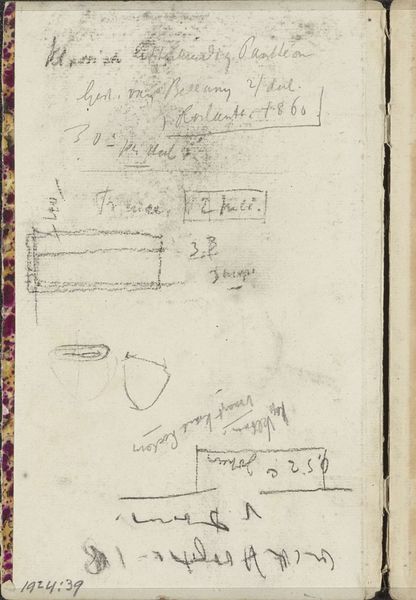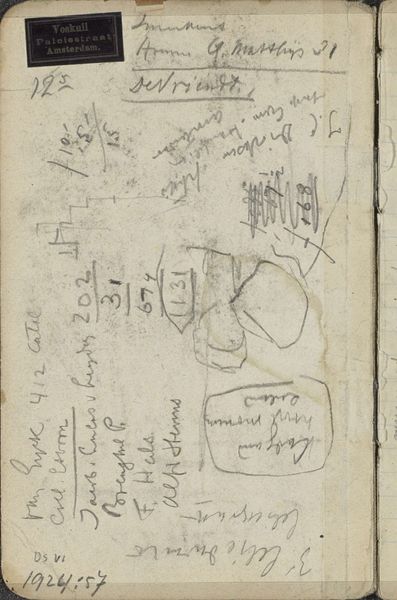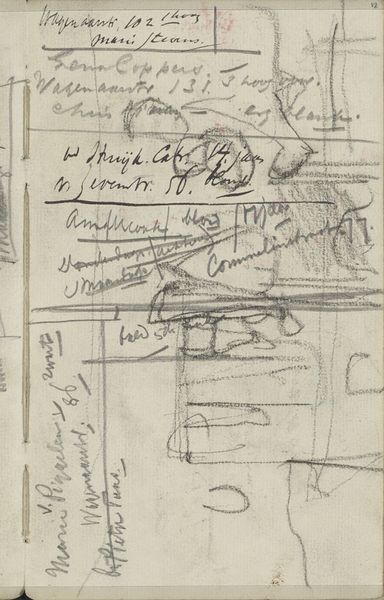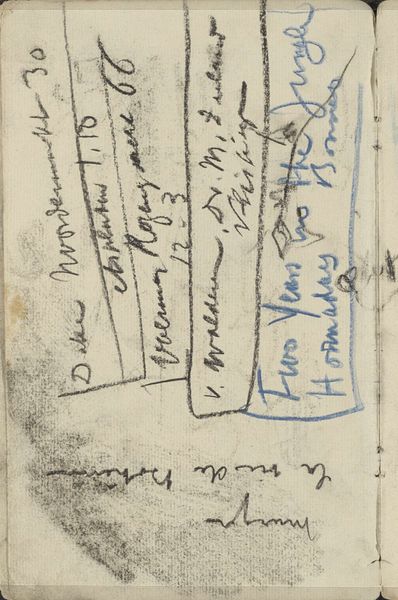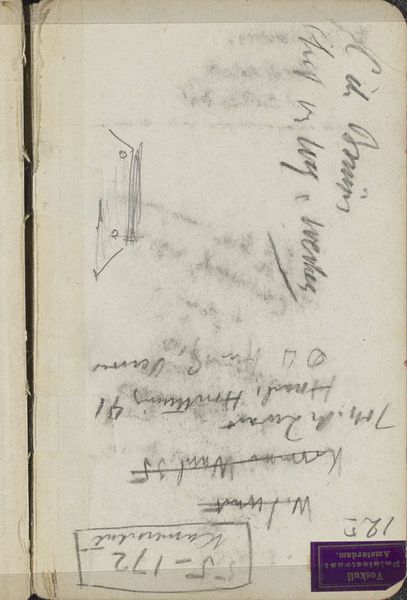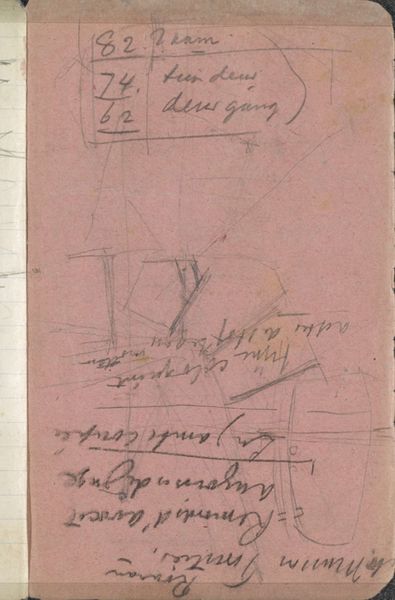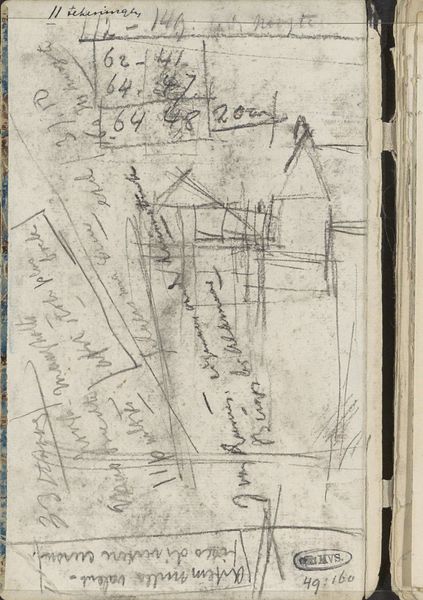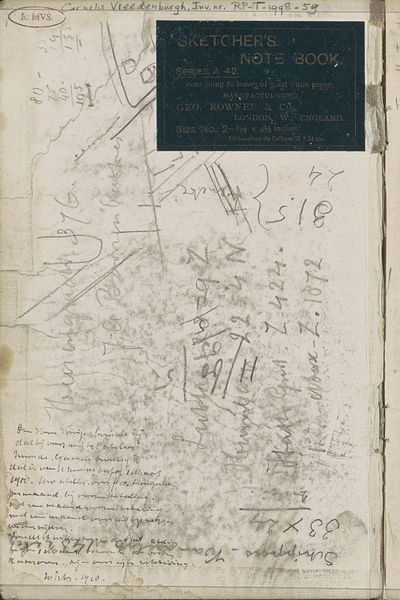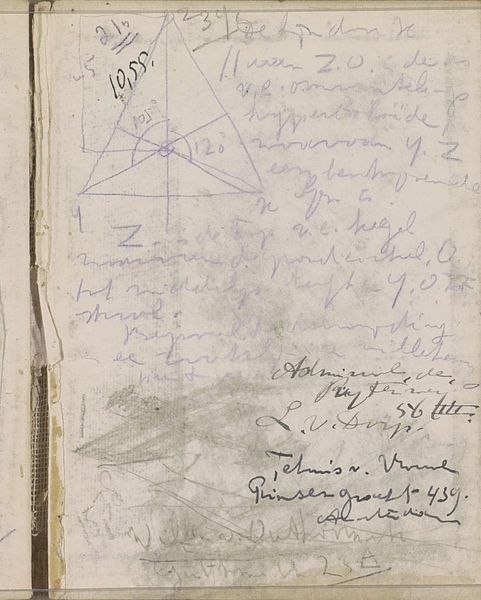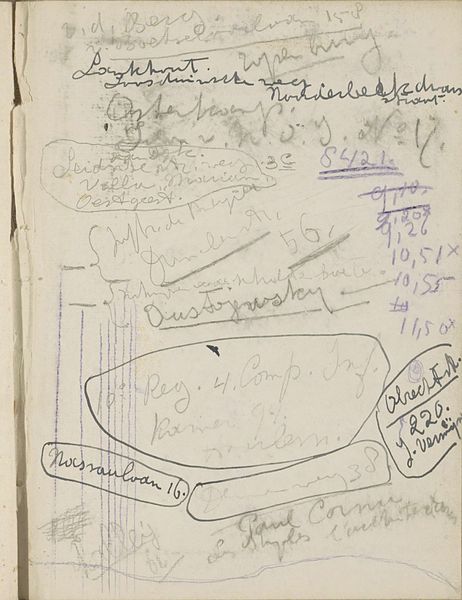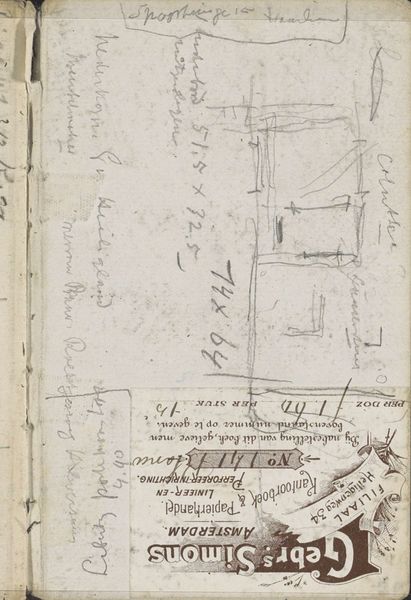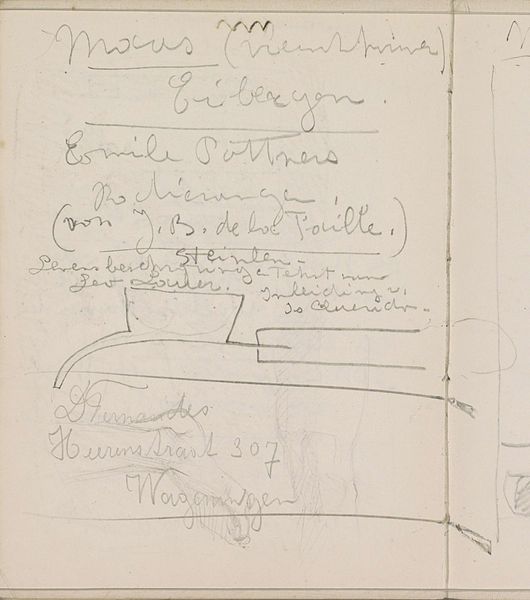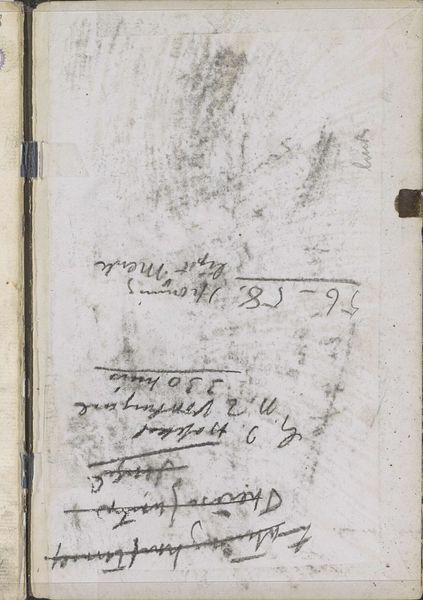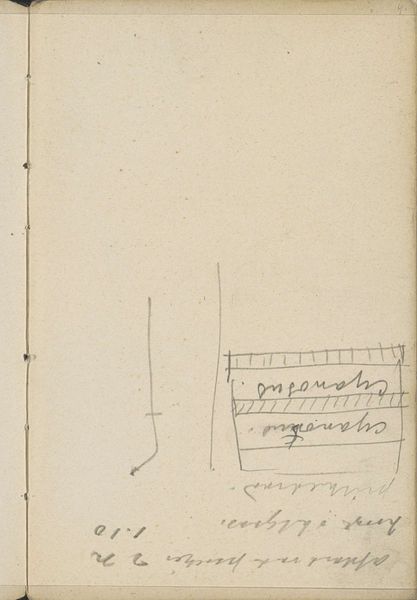
drawing, paper, pencil, pen
#
portrait
#
drawing
#
aged paper
#
hand written
#
sketch book
#
hand drawn type
#
paper
#
form
#
personal sketchbook
#
sketchwork
#
fading type
#
pencil
#
abstraction
#
line
#
pen work
#
sketchbook drawing
#
pen
#
sketchbook art
#
modernism
Copyright: Rijks Museum: Open Domain
Editor: This is a study from sometime between 1906 and 1945, attributed to Reijer Stolk, currently held at the Rijksmuseum. It's done with pen and pencil on paper, and the composition feels so chaotic and energetic. There's an incredible amount of layering here with text and image that are difficult to fully isolate from one another. What do you make of it? Curator: This is indeed a fascinating assemblage of forms and textures. We should approach it not as a singular, representational image, but rather as a field of intersecting lines and planes, exploring the materiality of the paper surface itself. Editor: I see what you mean. It's not really "about" anything specific, right? Curator: Precisely. Notice how the density of the lines varies across the surface. Certain areas become almost sculptural, built up through the accretion of marks, whilst others remain sparse, almost untouched. How does this modulation affect your reading of the composition as a whole? Editor: Well, my eye is definitely drawn to the denser areas first. They feel more important, even though I don't know what they depict. But what about the writing; do you feel it relates formally? Curator: The incorporation of text is crucial. These aren't merely captions or annotations, but graphic elements in their own right. Observe how the linear quality of the handwriting interacts with the architectural sketches. Does this tension produce particular sensations for you? Editor: It does emphasize the idea of this work being less about description and more about raw visual experiment. I can also feel the importance of the page itself. Curator: And what have you learned through a close inspection of Stolk's experiment? Editor: That even unfinished works, can have intrinsic beauty. I won’t judge something if I don’t get the historical background and understand the core components. Curator: And I was pleased to hear such enthusiasm!
Comments
No comments
Be the first to comment and join the conversation on the ultimate creative platform.
